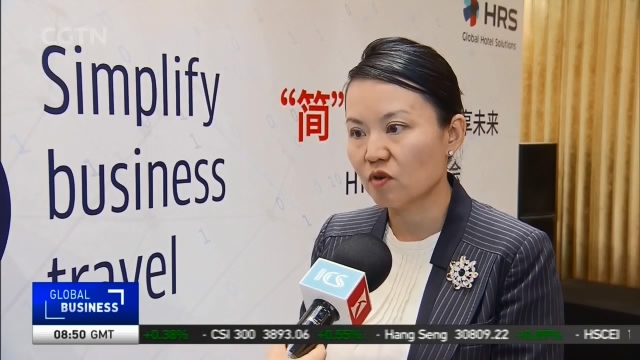
17:11, 10-May-2018
Easier Business Trip: AI helps travelers simplify process
02:53

Travel sector insiders say that technology such as artificial intelligence and virtual reality isn't reducing the number of business trips in Asia. Instead, it's making them less expensive and easier on travelers' nerves. Mi Jiayi has the story.
Going on business trips can be tiresome. From booking flights and hotels to making payments, to gathering up the invoices and getting reimbursement, many employees have to do everything on their own. But things are changing. Professional travel management companies are beginning to take on the troublesome tasks for the corporations. Some are even using the latest artificial intelligence technology to help companies simplify the entire process.
KIMI JIANG, VICE PRESIDENT ASIA PACIFIC, HRS "The latest AI payment systems to simplify everything to paperless seamless experience for our travellers. They just need to book the hotel, and then do the check in and do the check out. And it's done. The complicated process is leveraging AI tech through the company account directly to the hotel, and the hotel will put together the VAT fapiao for companies once a month."
This is just one of the new trends in business travel. Other new features include price comparisons and tailored recommendations for flights and hotels based on clients' preferences. HRS says China and Japan together now account for one third of global business trips every year. The annual growth rate of China's business travel market was 15.4 percent over the past 17 years, and it is expected to grow an additional eight percent this year. In other countries, individual travel bookings and corporate travel bookings through Travel Management Companies, or TMCs, are about the same in number, according to another business provider. But in China, he says, the TMC market is only one-tenth of the OTA market. What does that mean?
FANG JIQIN, CEO CTRIP CORPORATE TRAVEL "There's huge growth potential in this market. Why? In the past, companies wanted the cheapest airline tickets and hotel fees. But they didn't know what was the cheapest. Was it the same-day ticket or the ticket you order three days earlier, or five days earlier? It's difficult for companies to know without a professional management advisor."
China's foreign investment in the first quarter reached 25.5 billion US dollars, up 24 percent from a year ago, underlining the huge market for corporate travel from Chinese companies. Jiang estimates that the Belt-and-Road regions will be one of the major contributors to China's business travel over the next few years.

SITEMAP
Copyright © 2018 CGTN. Beijing ICP prepared NO.16065310-3
Copyright © 2018 CGTN. Beijing ICP prepared NO.16065310-3